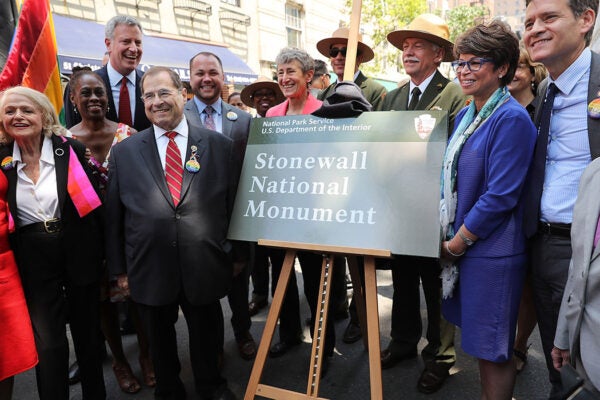Exporting the Convict Clause: Slaves of the State in the Canal Zone
The criminalization of Blackness enabled by the Thirteenth Amendment brought chain gangs to the construction projects of the Panama Canal Zone.
Of Heights and Men
Given its strong gendered associations, it may be surprising that height hasn’t been well studied by historians.
Coffee for the Resistance
During Indira Gandhi’s autocratic Emergency in 1975, one New Delhi coffeehouse became a key gathering place for opponents of her politics.
Coco De Mer: The Magical Derrière of the Sea
Once viewed as a precious item of mysterious origin, the seed of the coco do mer palm, though better understood today, remains a rare and valuable commodity.
How a Postwar German Literary Classic Helped Eclipse Painter Emil Nolde’s Relationship to Nazism
While Nolde was one of the many victims of the Third Reich’s repressive responses to “degenerate art,” he was also one of Nazism’s great admirers.
Stonewall National Monument Declaration: Annotated
In June 2016, President Obama proclaimed the first LGBTQ+ national monument in the United States at the site of the 1969 Stonewall Uprising in New York City.
How Hungary’s Hard Rock Became Hard Right
Punk and hard rock—or at least extremist, right-wing versions of them—are alive and well in post-Cold War Hungary.
Walking the Race Line on the Train Line
Investigators never reached a conclusion about the death of Pullman porter J. H. Wilkins, but his killing revealed much about the dangers of his profession.
Marseille: Independent, Industrial, and Mediterranean
From Caesar’s Commentaries to the modernism of Le Corbusier, the port city of Marseille has preserved a sense of individuality and industry.
Military Policing and Militarizing the Police
The use of military strategies inside the borders of the United States has long been connected with racial politics.









